
The FDA recommended a follow-up meeting with Clene to further discuss the analyses needed to support the accelerated approval pathway for CNM-Au8 in amyotrophic lateral sclerosis.

Isabella Ciccone, Content Associate, NeurologyLive®, has been with the team since September 2022. Follow her on X @iciccone7 or email her at [email protected]

The FDA recommended a follow-up meeting with Clene to further discuss the analyses needed to support the accelerated approval pathway for CNM-Au8 in amyotrophic lateral sclerosis.

The FDA has agreed that a scale used in ongoing phase 1/2 clinical trials could potentially serve as an intermediate clinical end point for accelerated approval pathway for uniQure’s investigational gene therapy AMT-130.

AbbVie recently announced that it is on track to submit the new drug application for its investigational Parkinson disease agent tavapadon to the FDA in 2025.

BIIB122 is a selective, central nervous system-penetrant small molecule that could potentially improve lysosomal dysfunction among patients with LRRK2-associated Parkinson disease.
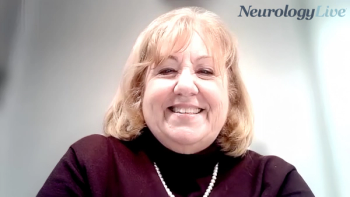
The manager of the BARLO MS education program at St. Michael's Hospital highlighted the significance of recognition, the pivotal role of nurses in multiple sclerosis care, and the lasting impact of mentorship and advocacy. [WATCH TIME: 5 minutes]

The director of epilepsy surgery at Allegheny Health Network discussed how clinicians can successfully pinpoint the source of epilepsy in the brain through innovative procedures like stereo electroencephalography.

New data from the phase 3 SKYLINE study suggests soticlestat as a promising adjunctive therapy for seizures among children and young adults living with Dravet syndrome.
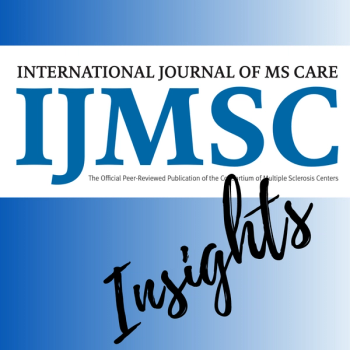
A new feature, in collaboration with NeurologyLive® and the International Journal of MS Care, brings perspectives from both the research and clinical community on women’s brain health as a subspecialty in neurology.

Krista L. Lanctôt, PhD, professor of psychiatry and pharmacology at the University of Toronto, talked about findings from a recent post hoc analysis presented at CTAD 2024 on nabilone for agitation in Alzheimer disease.

A recent study presented at AES 2024 revealed that plasma p-tau217 linked to memory decline and sleep disruptions in late-onset epilepsy, highlighting its potential as a biomarker.

The director of epilepsy surgery at Allegheny Health Network talked about research recently presented at AES 2024 on stereo-electroencephalography, a minimally invasive treatment for patients with epilepsy. [WATCH TIME: 7 minutes]

In a further date from the ongoing open-label extension of the phase 2b X-TOLE study, results demonstrated that the majority of treatment-emergent adverse events associated with azetukalner were mild or moderate.

A recent study presented at AES 2024 showed that fewer than 15% of doses of diazepam nasal spray administered to pediatric patients with epilepsy required a second dose in 24 hours.

A recently initiated phase 1/2 trial of NS-050/NCNP-03 will assess patients with Duchenne muscular dystrophy on dystrophin production, muscle strength, mobility, and functional exercise capacity.

Catch up on any of the neurology news headlines you may have missed over the course of November 2024, compiled all into one place by the NeurologyLive® team.
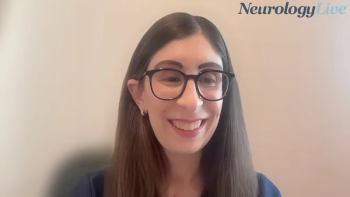
The assistant professor of neurology at the Icahn School of Medicine at Mount Sinai provided an overview of a session on exercise and migraine presented at the 2024 Scottsdale Headache Symposium. [WATCH TIME: 5 minutes]

Findings from a phase 2/3 study demonstrated the efficacy and safety of a higher dose regimen of nusinersen in treating spinal muscular atrophy in both treatment-naïve and previously treated patients.

Shalini Paruthi, MD, FAASM, a spokesperson for the American Academy of Sleep Medicine, provided a clinical overview on restless leg syndrome for diagnosing and tailoring treatment for patients with the condition.

As part of our monthly clinician spotlight, NeurologyLive® highlighted epilepsy expert Stephanie C. Randle, MD, MS, director of the Tuberous Sclerosis Complex Clinic at Seattle Children's Hospital.

A recent multicenter study showed that dried blood spot testing for neuromyelitis optica spectrum disorder provided high accuracy and practicality in resource-limited settings.
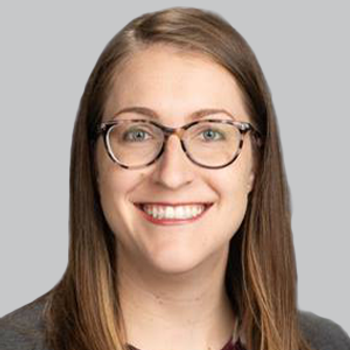
A new study revealed stark racial and socioeconomic disparities in pediatric neuromyelitis optica spectrum disorder outcomes, underscoring the need for targeted interventions.

The pediatric neurologist at Duke Health and chief executive officer at Theranica talked about a remote electrical neuromodulation wearable that showed promising results for the treatment and prevention of migraine in pediatric patients. [WATCH TIME: 5 minutes]

The vice president of scientific engagement at the Alzheimer's Association discussed advancements in blood biomarker tests, their use in specialty care, and the development of clinical guidelines for broader integration.

Jessica Langbaum, PhD, the senior director of research strategy at Banner Alzheimer’s Institute, discussed the challenges and opportunities in improving diversity in Alzheimer disease clinical trials.

Findings from a recently published study suggest patients with Parkinson disease can reduce postural sway as efficiently as neurologically healthy patients when performing horizontal saccades.
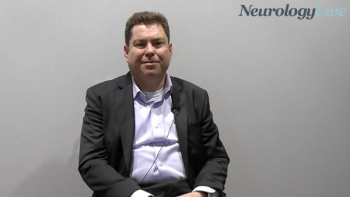
The professor of neurology and radiology at University of California, San Francisco, discussed the potential of blood-based biomarkers in Alzheimer treatment eligibility, highlighting current limitations and the importance of safety monitoring. [WATCH TIME: 7 minutes]

The neurologist in the Headache Center at Cleveland Clinic shared her post perspective on the 2024 AHS Scottsdale meeting which highlighted advancements in headache medicine and the growing impact of the field on patient care. [WATCH TIME: 5 minutes]

The phase 2 DIMENSION study results showed that SAGE-71 was well-tolerated but did not meet its primary end point, leading to Sage Therapeutics’ decision to discontinue its development.

The dean and chief academic officer at the University of Miami Miller School of Medicine discussed the university’s investment in computational biology to advance aging and neuroscience research. [WATCH TIME: 5 minutes]

The William S. and Lois Stiles Edgerly Professor of Neurology at Yale School of Medicine talked about the ongoing evolution of multiple sclerosis diagnostic criteria and the importance of comprehensive testing to guide early intervention and improve outcomes. [WATCH TIME: 5 minutes]